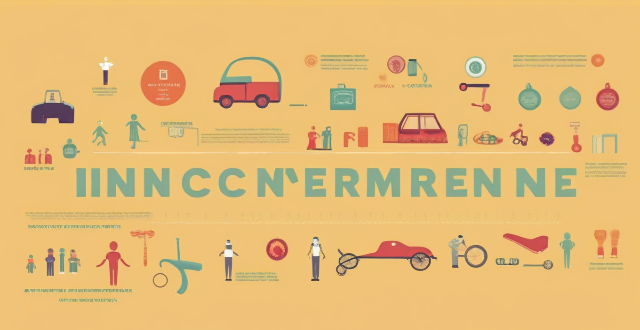Loan Insurance

What is private mortgage insurance (PMI) and do I need it ?
Private Mortgage Insurance (PMI) is a type of insurance that protects the lender, not the borrower, in case of default on a mortgage loan. It is typically required when a homebuyer makes a down payment of less than 20% of the home's purchase price. Whether you need PMI depends on factors such as your down payment, credit score, loan-to-value ratio, and type of loan. Consider the cost of PMI and alternatives before deciding to obtain it.

How do I qualify for a mortgage loan ?
This article provides a detailed guide on how to qualify for a mortgage loan, highlighting key factors that lenders consider such as income, credit score, debt-to-income ratio, employment history, and assets and liabilities. It also outlines steps to take in order to increase chances of success including checking your credit score, calculating your DTI, gathering financial documents, shopping around for lenders, getting pre-approved for a loan, finding a home within budget range, making an offer, and completing the closing process.

How do I apply for a student loan ?
This text provides a comprehensive guide on how to apply for a student loan. It outlines nine steps, including determining needs, researching loan options, checking eligibility requirements, gathering documents, completing and submitting the application form, waiting for approval, signing promissory notes and loan agreements, and receiving disbursement of loan funds. The guide emphasizes the importance of understanding different loan options and their terms and conditions before applying. It also highlights the need to gather all necessary documents and provide accurate information in the application form. Overall, this text is an essential resource for students seeking financial assistance for their education.

What factors determine the amount of a student loan ?
The amount of a student loan is determined by several key factors, including eligibility criteria set by the lender, the cost of attendance at the chosen school, the student's financial need, and the type of loan (federal or private). Other influential factors include repayment options, school choice, and the availability of other financial aid. Students should consider all these elements and explore all possible funding options before taking out a loan.

How much life insurance do I need ?
Determining how much life insurance you need is a complex process that depends on your financial situation, income replacement needs, debts and final expenses, current coverage, and consultation with a professional. Assessing your financial needs, calculating income replacement needs, considering debts and final expenses, evaluating current coverage, and consulting with a professional are all important steps to ensure you have the right amount of life insurance coverage for your loved ones.

How does defaulting on a student loan affect future borrowing ?
Defaulting on a student loan can severely impact your financial future, including your ability to borrow money. Here's what happens when you default and how it affects future borrowing: 1. **Consequences of Defaulting**: When you fail to make payments on your student loan for an extended period (typically 270 days), it's declared in default. The loan servicer then takes measures like wage garnishment, tax refund offset, and charging collection fees. Your credit score also takes a significant hit. 2. **Impact on Future Borrowing**: - **Difficulty Obtaining New Loans**: Lenders see you as a high-risk borrower, making it hard to get mortgages, car loans, or personal loans. - **Higher Interest Rates**: Even if approved, you face higher interest rates due to your damaged credit score. - **Limited Borrowing Options**: You may only qualify for secured or co-signed loans. - **Trouble Renting Property**: Some landlords check credit scores, and a defaulted loan can hinder your rental applications. - **Impact on Employment Opportunities**: While less common, some employers might check your credit report, affecting job prospects in industries where financial responsibility is crucial. 3. **Recovering from Default**: - **Rehabilitation Programs**: Many lenders offer these to help you make affordable payments over time, removing the default status. - **Consolidation Loans**: You can consolidate your defaulted loan into a new Direct Consolidation Loan through the federal government, making it easier to manage your debt. However, this doesn't remove the default status from your credit report. - **Paying Off the Debt**: If possible, paying off the loan in full removes the default status and improves your borrowing prospects. Negotiating a settlement with your lender or seeking assistance from a nonprofit credit counseling agency are other options.

How can I manage my student loan repayment after graduation ?
## Summary of Managing Student Loan Repayment After Graduation After graduation, managing student loan repayment can be a significant challenge. However, by following these steps, you can effectively manage your loans and avoid unnecessary fees or damage to your credit score: 1. **Understand Your Loan Terms**: Before starting any repayment plan, it's crucial to understand the terms of your student loans, including interest rates, monthly payments, and grace periods. 2. **Create a Budget**: A budget helps prioritize expenses and determine how much money can be allocated towards student loan repayment each month. Include all necessary expenses in your budget. 3. **Make Payments On Time**: Late payments can lead to fees and negatively impact your credit score. Set up automatic payments or make manual payments on time to avoid penalties. 4. **Consider Consolidation or Refinancing**: If you have multiple loans with different terms, consolidating them into one payment or refinancing at a lower rate may simplify repayment and save money. 5. **Explore Repayment Options**: Federal student loans offer various repayment plans, such as income-driven plans that adjust your payments based on your income and family size. Discuss the best plan with your loan servicer. 6. **Seek Help if Needed**: If struggling to make payments, don't hesitate to reach out for assistance. Many loan servicers offer forbearance or deferment options, and there are also government programs that can provide support for student loan repayment.

Are there any programs that help with student loan forgiveness or relief ?
There are several programs available to help with student loan forgiveness or relief, including Public Service Loan Forgiveness (PSLF), Income-Driven Repayment Plans (IDRs), Teacher Loan Forgiveness Program, Disability Discharge, Closed School Discharge, and Borrower Defense to Repayment. These programs vary by country and eligibility requirements, but they all aim to make student loan payments more affordable or forgivable based on certain criteria such as employment in public service, income level, teaching at a low-income school, disability status, school closure, or being misled or defrauded by a college or university. It's important to research each option thoroughly and determine which one best fits your individual circumstances and needs.

What should I consider when choosing a private vs federal student loan ?
When choosing between a private and federal student loan, consider interest rates, repayment options, forgiveness programs, eligibility requirements, and the application process. Federal loans usually have lower interest rates and more lenient eligibility requirements, while private loans may offer more flexibility in repayment options but typically have higher interest rates. Weigh these factors against your individual circumstances and financial goals to make an informed decision about which type of loan is best for you.

Can I get a mortgage with bad credit ?
Getting a mortgage with bad credit is possible but may be more challenging and come with less favorable loan terms. To increase your chances, check your credit score, work on improving it, shop around for lenders, consider alternative options like FHA or VA loans, and be prepared to make a larger down payment.

What is the difference between term life insurance and whole life insurance ?
Difference between term life insurance and whole life insurance: - Term life insurance is temporary coverage, no cash value, renewable, and affordable. - Whole life insurance is permanent coverage, accumulates cash value, has level premiums, and is more expensive.

How does sports insurance work ?
Sports insurance is a specialized form of insurance that protects athletes and sports participants from financial losses due to injuries or accidents that may occur during physical activities. It provides coverage for medical expenses, lost wages, and other related costs associated with sports-related injuries. There are several types of sports insurance policies available, including personal accident insurance, liability insurance, equipment insurance, and travel insurance. Sports insurance typically covers a wide range of sports-related injuries and accidents, including medical expenses, disability, funeral costs, legal fees, equipment damage or theft, and travel expenses. The cost of sports insurance varies depending on several factors, including the type of sport, the level of risk involved, the policyholder's age and health status, and the amount of coverage desired.

How can I ensure that I'm getting the best price for my insurance ?
To ensure the best price for your insurance, shop around using comparison websites and direct insurers, consider brokers, increase your excess, pay annually instead of monthly, improve security measures, build a no-claims bonus, review coverage regularly, take advantage of discounts, maintain good credit history, avoid small claims, and renew early. These steps can help you save money on insurance while still ensuring adequate coverage.

How does age affect the cost of insurance ?
The article discusses how age affects the cost of insurance, with younger drivers typically paying higher premiums than older drivers. It highlights that health insurance costs can increase as people age due to increased risk factors and the need for more frequent medical care. Life insurance rates may also rise with age, while auto insurance rates may decrease for retired drivers who spend less time on the road. Homeowners insurance costs depend on the condition and value of the home, but older homes may require more maintenance and repairs. The article provides tips for managing insurance costs as you age, including reviewing coverage regularly, maintaining a good driving record, staying healthy, and considering long-term care insurance.

Is there an age limit for buying travel insurance ?
Is there an age limit for buying travel insurance? Most providers do not impose any restrictions based on age, but some policies may have specific requirements or limitations regarding age. When purchasing travel insurance, consider factors such as coverage options, pre-existing medical conditions, adventure sports coverage, cost, and reputation.

How much does sports insurance cost ?
The cost of sports insurance varies based on the type of sport, level of coverage, and individual's age and health status. High-risk sports typically have higher premiums than lower-risk activities. Basic policies may only cover medical expenses and lost wages due to injury, while more comprehensive plans may include additional benefits such as disability coverage and accidental death and dismemberment insurance. Younger athletes may have lower premiums than older ones, and individuals with pre-existing medical conditions or a history of injuries may face higher premiums. Tips for finding the best sports insurance policy include shopping around, considering bundling, and asking about discounts.

What is the process of buying insurance online like ?
The text provides a detailed guide on how to buy insurance online. It outlines the process in eight steps: researching and identifying needs, selecting an insurance provider, getting a quote, reviewing policy details, completing documentation, making payment and receiving policy documents, confirmation and follow-up, and activating coverage. The benefits of buying insurance online include convenience, comparison, transparency, and speed. However, precautions such as ensuring security and legitimacy of the website, and fully understanding the policy terms should be taken.

Is sports insurance necessary for amateur athletes ?
This article explores the necessity of sports insurance for amateur athletes. It defines sports insurance as coverage against injuries sustained during sports activities, including medical expenses, lost income, rehabilitation costs, equipment damage, and liability coverage. The article highlights the risks and costs associated with sports injuries, noting that 62% occur during recreational activities rather than competitive events. It argues that sports insurance offers peace of mind, financial protection, and access to quality care for amateur athletes but may not be necessary for all. Factors to consider when deciding whether to purchase sports insurance include risk level, personal finances, existing health insurance, and frequency of participation.

Can I buy travel insurance for someone else, like my parents or children ?
The article discusses the possibility of buying travel insurance for someone else, such as family members. It highlights the importance of understanding the specific requirements and restrictions associated with this process. The text provides a step-by-step guide on how to purchase travel insurance for someone else, emphasizing the need to choose the right policy that fits the insured person's needs and provides adequate coverage for their trip.

How does credit history influence insurance rates ?
The text discusses how credit history influences insurance rates. Insurers use credit history as a predictor of future claims and risk, with studies showing that individuals with poor credit histories are more likely to file claims and cost insurers more money than those with good credit histories. Several factors can affect insurance rates based on credit history, including payment history, amount owed, length of credit history, and types of credit used. Maintaining a strong credit history can potentially save money on insurance premiums and demonstrate financial responsibility to insurers.

Are there any tax benefits associated with buying certain types of insurance ?
The text discusses the tax benefits associated with buying various types of insurance, including health insurance, life insurance, disability insurance, long-term care insurance, and homeowner's insurance. The benefits include tax-deductible premiums and tax-free death benefits for certain policies. It is emphasized that consulting a tax professional or financial advisor is crucial to understand how these benefits apply to individual situations, as tax laws vary by country and can be complex.

Are pre-existing medical conditions covered by travel insurance ?
Travel insurance coverage for pre-existing medical conditions varies by policy and provider. Factors influencing coverage include the type of policy, deductibles and limits, waiting periods, and disclosure of information. Some policies offer limited or comprehensive coverage for these conditions, while others exclude them altogether. It is crucial to research different policies and consult with an insurance professional to find the best coverage for your individual needs.

What role does the insurance industry play in mitigating climate change ?
The insurance industry plays a crucial role in mitigating climate change through various mechanisms. They assess and price risks associated with climate change, providing financial incentives for mitigation, invest in sustainable projects, apply stricter underwriting criteria for high-emission industries, collaborate on research efforts, innovate insurance products, educate clients about climate risks, lobby for climate policies, and support reinsurance to share risks globally and back catastrophe bonds. By integrating climate considerations into their business models, insurers can drive progress toward a more sustainable future.

How does having a pre-existing condition impact my ability to buy insurance ?
The text discusses the impact of pre-existing conditions on insurance purchase, including eligibility, cost, waiting periods, exclusions and limitations. It also provides tips for buying insurance with a pre-existing condition such as researching options, disclosing relevant information, considering government-sponsored plans, and working with an insurance broker.

Can I purchase travel insurance after booking my trip ?
The article discusses the possibility of purchasing travel insurance after booking a trip. It emphasizes that buying travel insurance early provides more comprehensive coverage, peace of mind, and potentially better prices. To purchase travel insurance after booking, one should research different policies, contact their travel agent or insurance company, provide relevant information, read the policy details carefully, and keep documentation safe. The article concludes that buying travel insurance early is generally recommended for optimal coverage and peace of mind during travels.

What is sports insurance and why is it important ?
Sports insurance, also known as athletic or sports-related insurance, is a type of insurance that covers athletes and participants in physical activities from injuries or accidents. It includes coverage for medical expenses, lost wages, and other damages resulting from an injury or accident. Sports insurance is important because it provides protection against injuries, lost wages, liability, and offers peace of mind for athletes. It allows them to participate in their chosen sport without worrying about the financial implications of an injury or accident.

Is it worth buying travel insurance for domestic trips ?
The article discusses the importance of travel insurance for domestic trips. It suggests that while it may not always be necessary, it can provide an additional layer of protection and peace of mind, especially for those embarking on adventurous or expensive trips. The article provides a list of key points to consider when deciding whether to purchase travel insurance, including risk assessment, coverage details, cost analysis, personal circumstances, and peace of mind. It also lists the benefits of travel insurance for domestic trips, such as medical coverage, trip interruption/cancellation, baggage loss/theft, emergency evacuation, and accidental death and dismemberment. The article concludes by suggesting that the decision to buy travel insurance depends on various factors such as the nature of the journey, existing coverage, and personal preferences.

What role does life insurance play in estate planning ?
Life insurance is a crucial tool in estate planning, offering solutions for liquidity needs, tax considerations, charitable giving, business succession, income replacement, and wealth preservation. It helps beneficiaries gain immediate access to cash, manage estate taxes, support philanthropic goals, facilitate business transitions, replace lost income, and transfer wealth efficiently. Life insurance policies can be tailored to fit individual needs, making them a versatile component of any comprehensive estate plan.

Will travel insurance cover me if I get sick while abroad ?
Travel insurance can cover travelers if they get sick while abroad, but coverage depends on the policy's terms and conditions. Factors to consider include coverage limit, deductible, pre-existing conditions, exclusions, emergency evacuation/repatriation, and claims process. When choosing a travel insurance policy, assess your needs, compare policies, read reviews, purchase early, and consult a professional if necessary.

What kinds of questions should I expect during the insurance application process ?
When applying for insurance, you will be asked a variety of questions to assess your risk level and determine the appropriate coverage and premiums. These questions cover personal information, employment details, health history, lifestyle habits, driving record, insurance history, financial information, beneficiaries and dependents, and additional questions related to hobbies, travel plans, and pets. Honesty is crucial when answering these questions as providing false information can result in denied claims or policy cancellation. It's essential to review your application carefully before submitting it to ensure all information is accurate and complete.